Romans: Daily Life
The daily experiences of most people in Britain were eventually touched by its incorporation into the Roman Empire. But in the countryside, where most people lived, life continued to centre upon the enclosed world of the homestead and the grind of agricultural labour.
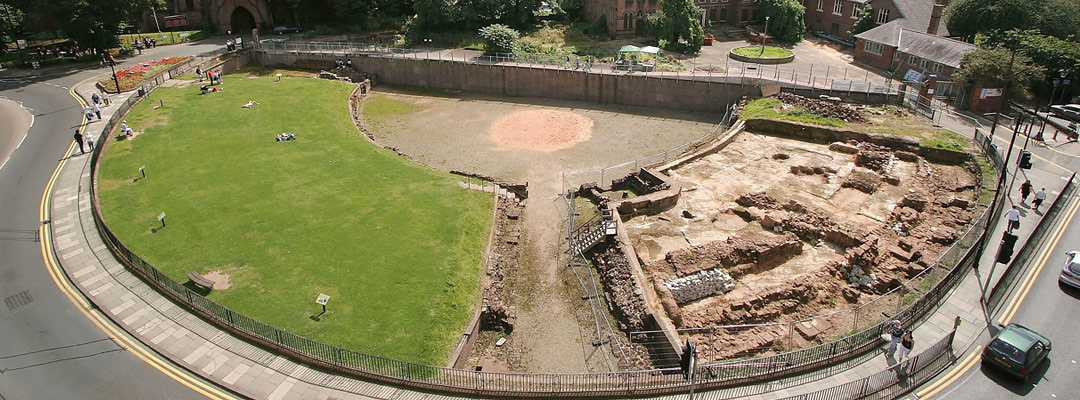
URBAN LIVING
The single biggest change from pre-Roman times was the development of towns. Almost every family in the province was in some way involved in civic life – even if it was only through occasional visits to a town to pay taxes.
The growth of towns opened up new markets for goods and produce from the country, which could be sold in the forum and basilica complex that lay at the centre of every town. Here people could watch the progress of court cases conducted on behalf of leading citizens according to an entirely new legal system. They could also hear proclamations read, and follow the discussions of the town council.
A morning’s work might be followed by a visit to the public baths (the remains of those at Wroxeter, Shropshire, are particularly outstanding). In these great buildings a wide range of people engaged in that essentially Roman habit of mixing exercise, gossip and steam bathing.
Smaller private bathing establishments were provided at official guesthouses, mansiones, such as the one seen at Wall, Staffordshire, and at country villas such as Lullingstone, Kent.
GARRISON LIFE
The soldiers in the legionary bases and the remote frontier forts of the north enjoyed a private life outside military routine. Although before AD 200 soldiers’ marriages were not legally recognised, many did get married, either to native women or to the daughters of their fellow soldiers or civilians stationed at their fort.
The shops and taverns of the fort’s civilian settlement (the vicus) offered limitless opportunities for recreation and a dizzying cocktail of Roman and more local tastes. Locally brewed beer rather than wine was the soldiers’ drink of choice, according to the Vindolanda tablets.
Soldiers also had their own bathhouses. At Chesters, on Hadrian’s Wall, the changing room would have been big enough for athletic games.
GAMES AND SHOWS
The amphitheatres designed for other preoccupations of the Roman Empire – games, gladiatorial contests and wild animal shows – are still visible at towns such as Cirencester (Gloucestershire), Chester, and Silchester (Hampshire), and at military sites such as Richborough, Kent. We understand very little about how they were used, although depictions of gladiators have been found in both military and civil contexts. It has been estimated that the Silchester amphitheatre had seats for over 4,500 townspeople.
RECREATION
After a busy day in the town, the less well-off returned to their shops and houses or villages in the countryside. The aristocrats of the town council might retire to town houses or to their country villas – in both cases buildings made up of rectangular rooms in the Roman fashion – to enjoy the benefits of underfloor hypocaust heating, or to dine with friends in a formal dining room (triclinium).
Life was similar for the commanders of military units: the commandant’s house (the praetorium) of every fort was modelled on a Mediterranean town house. Both villa dwellers and military commanders enjoyed hunting – an activity depicted on domestic items such as pottery, mosaics and an intaglio (an inset gemstone from a finger ring) found near Housesteads on Hadrian’s Wall.
More about Roman Britain
-
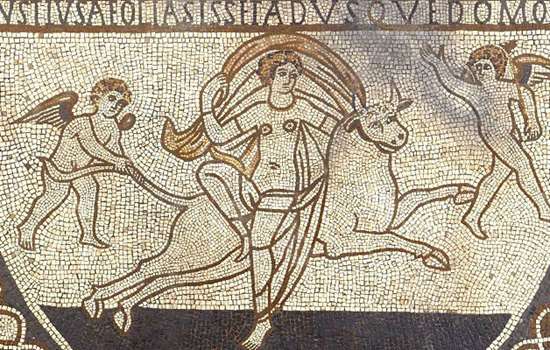
Romans: Art
Rome’s success was built on the organised and practical application of ideas long known to the ancient world.
-
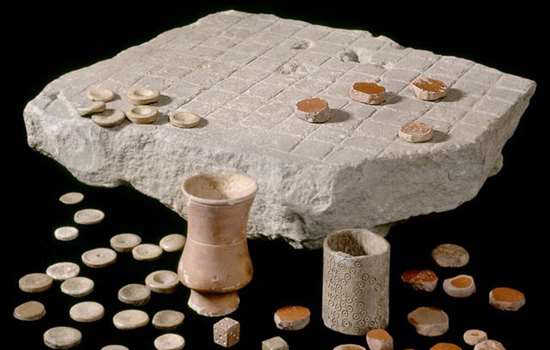
Daily Life in Roman Britain
The daily experiences of most people in Britain were inevitably touched by its incorporation into the Roman Empire.
-
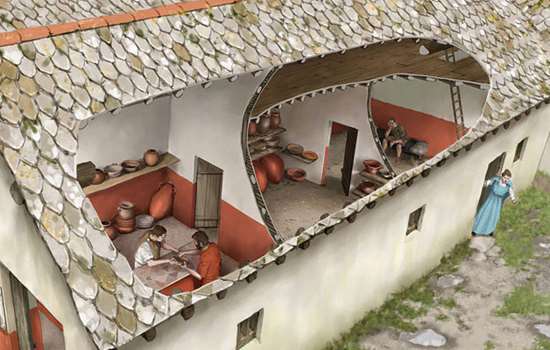
Romans: Commerce
Most people in Roman Britain made their livings from a mixture of subsistence farming and exchange of specialist goods.
-
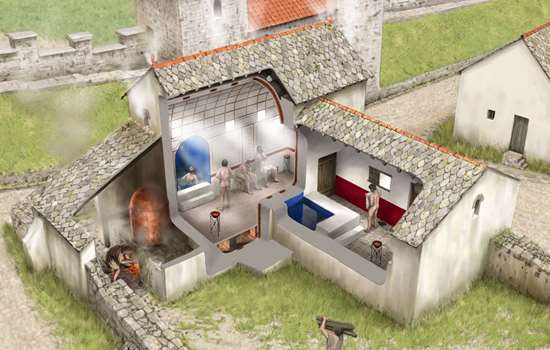
Roman Food and Health
Discover how the Roman conquest changed what people in Britain ate, and how they looked after their health.
-
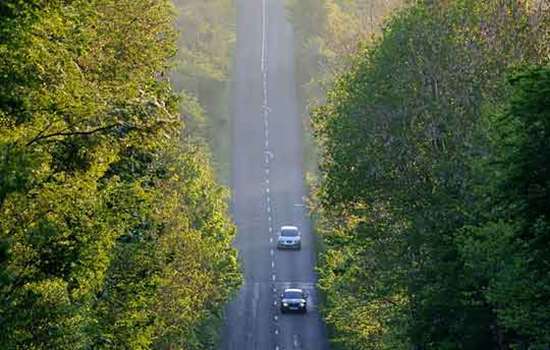
Roads in Roman Britain
Discover how, where and why a vast network of roads was built over the length and breadth of Roman Britain.
-
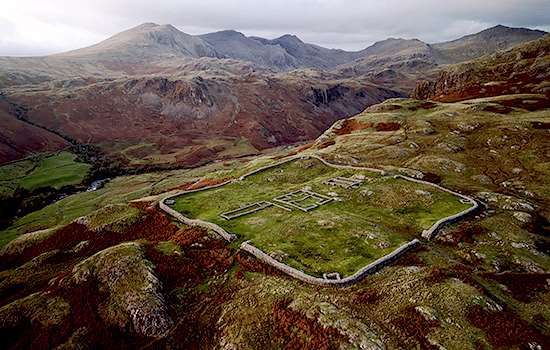
The Romans in the Lake District
Find out about the network of forts and roads the Romans built in the Lake District to control this area on the empire’s frontier.
-
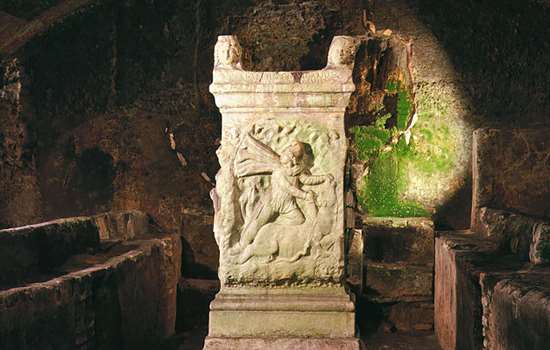
Roman Religion
The Romans were tolerant of other religions, and sought to equate their own gods with those of the local population.
-
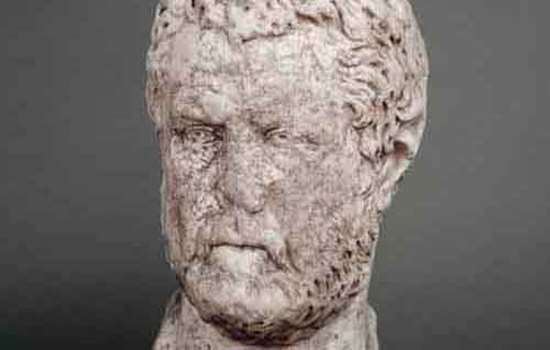
Romans: Power and Politics
Britain was one of some 44 provinces which made up the Roman Empire at its height in the early 2nd century AD.
Roman Stories
-
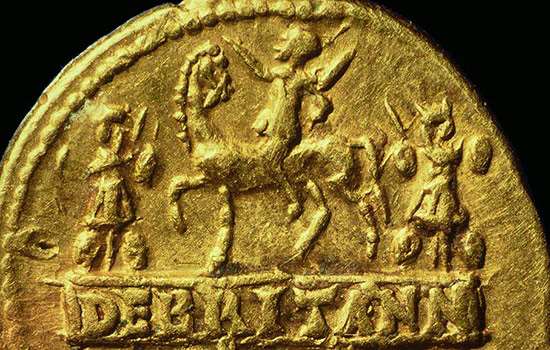
The Roman invasion of Britain
In AD 43 Emperor Claudius launched his invasion of Britain. Why did the Romans invade, where did they land, and how did their campaign progress?
-
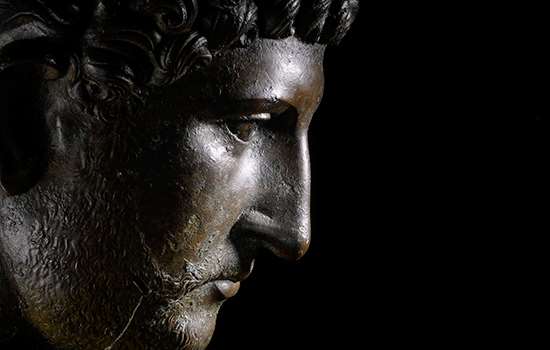
Emperor Hadrian
Discover the man behind the Wall. As emperor of the Roman Empire, Hadrian focused on securing the empire’s existing borders, and Hadrian’s Wall was the most impressive statement of this policy.
-
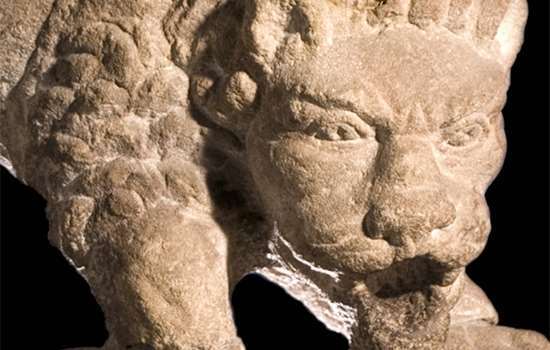
The Corbridge Lion and Changing Beliefs in Roman Britain
The exquisite sculpted lion discovered at Corbridge Roman Site offers a tantalising glimpse into the changing beliefs of Romans living in Britain.
-
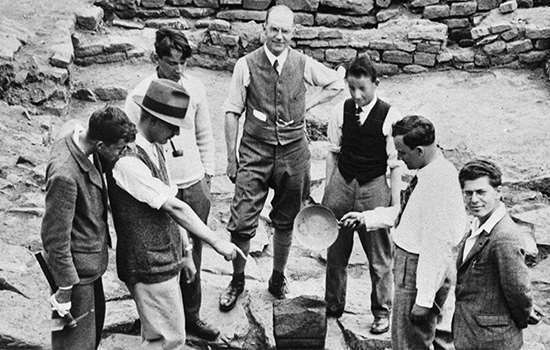
Uncovering the Secrets of Hadrian's Wall
The remains of Birdoswald Roman Fort have revealed more about Hadrian’s Wall than any other site along the Wall.
-

Mithras and Eastern Religion on Hadrian’s Wall
A remarkable sculpture of Mithras found on Hadrian’s Wall reveals religious and military connections with distant parts of the Roman Empire.
-
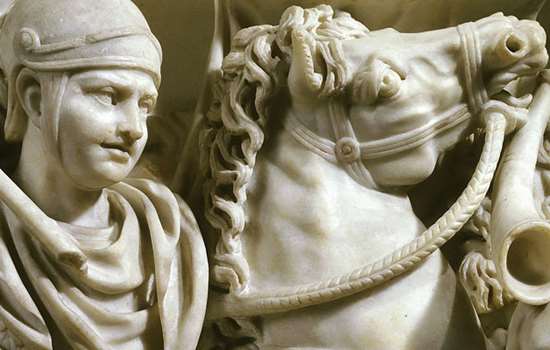
The Mysterious Absence of Stables at Roman Cavalry Forts
How recent archaeological excavations on Hadrian’s Wall have revealed why it has always been so difficult to discover where Roman soldiers kept their horses.
-
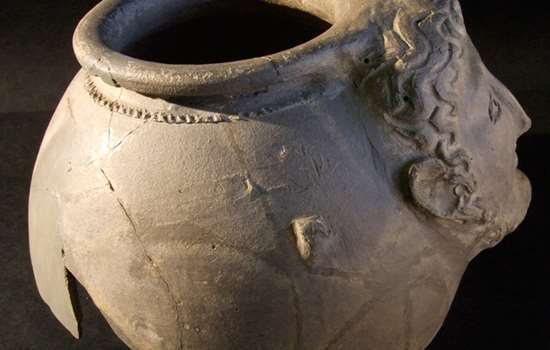
The Mysteries of Corbridge
From strange heads on pots to missing temples, there are many things about Corbridge Roman Town that continue to puzzle us.
-
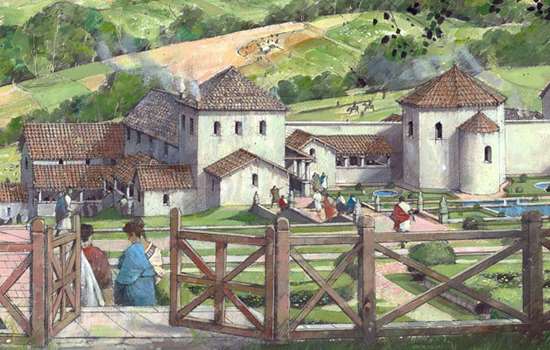
Country Estates in Roman Britain
An introduction to the design, development and purpose of Roman country villas, and the lifestyles of their owners.